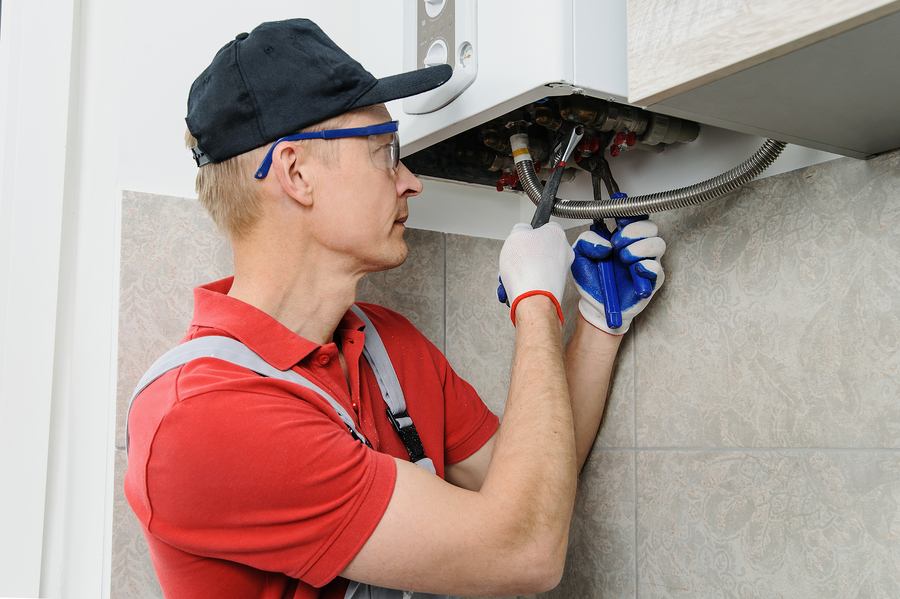Call This Wednesday to Get $50 OFF
Call us today
214-943-2424

As homeowners explore ways to improve energy efficiency and reduce utility bills, the idea of upgrading to a tankless water heater often comes up. But are tankless water heaters worth the investment? Let's take a closer look at the benefits, drawbacks, and considerations that can help you decide if a tankless water heater installation is the right choice for your home.
Unlike traditional water heaters that store a large amount of hot water in a tank, a tankless water heater heats water on demand. This means the unit only heats water when needed, providing an endless supply of hot water while using less energy overall.
Tankless water heaters are becoming increasingly popular because of their energy efficiency and space-saving design. However, they do come with a higher upfront cost, which leads many homeowners to question whether they are worth the investment.
One of the primary reasons to consider tankless water heater installation is energy efficiency. Traditional water heaters continuously heat water to maintain a stored supply, using energy even when no one is using hot water. In contrast, tankless water heaters only consume energy when water is in use, which can lead to significant savings on energy bills. According to the U.S. Department of Energy, tankless water heaters can be 24% to 34% more energy-efficient than conventional tank models.
Since tankless water heaters heat water on demand, you never have to worry about running out of hot water. Whether you’re taking multiple showers, running the dishwasher, or doing laundry, a properly sized unit will supply a continuous flow of hot water to your household.
Traditional water heaters come with bulky tanks that take up valuable space in your home. Tankless water heaters are much smaller and can be installed in tight areas, freeing up space for other uses.
Tankless water heaters generally have a longer lifespan than traditional tank units. With proper maintenance and occasional water heater repair services, a tankless water heater can last up to 20 years or more. This extended lifespan can further justify the investment.
The primary drawback of tankless water heaters is the higher initial cost. The price for the unit and the tankless water heater installation in Hurst, TX can be significantly higher than a traditional water heater. However, the long-term energy savings often help offset these upfront expenses over time.
Tankless water heaters require specialized installation, which means hiring an experienced plumber. Depending on your home’s plumbing system and gas or electrical requirements, additional upgrades may be needed. It's essential to work with a trusted plumbing service to ensure the unit is installed correctly for optimal performance.
While tankless water heaters are low maintenance, they do require periodic servicing to prevent issues like mineral buildup. Regular maintenance by a professional plumbing repair service like Texas Rooter is necessary to ensure the system operates efficiently and lasts as long as possible.
Ultimately, deciding whether a tankless water heater is worth the investment depends on your individual needs, budget, and home setup. If you have a large household with high hot water demand, the continuous supply of hot water can be a game-changer. The energy savings over time may also help justify the higher upfront cost.
However, if your hot water usage is minimal or your budget is tight, a traditional water heater may still be a more affordable option. Either way, consulting with a licensed plumber is essential. A plumbing service can assess your home’s hot water needs and provide expert recommendations on whether a tankless water heater installation is the best solution for you.
We’ve all heard that soft-but-persistent sound of water trickling in the bathroom long after the…
Read MoreThere’s nothing like a blast of cold water to jolt you awake - and not…
Read MoreYou turn on the faucet and clean water comes out; you flush the toilet and…
Read MoreThe average individual doesn't think twice about the toilet, let alone the parts within in…
Read MoreThe notorious burst water main starts with an unusual sound - maybe a low hum,…
Read More